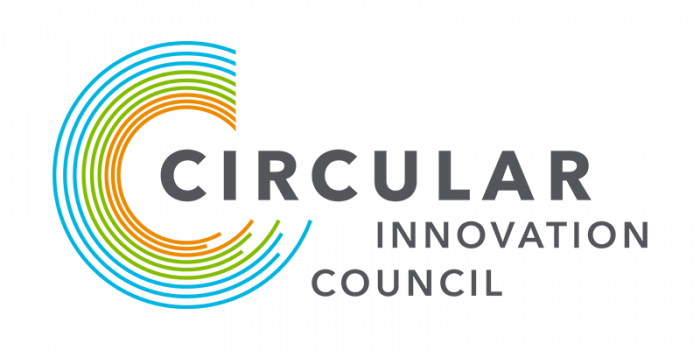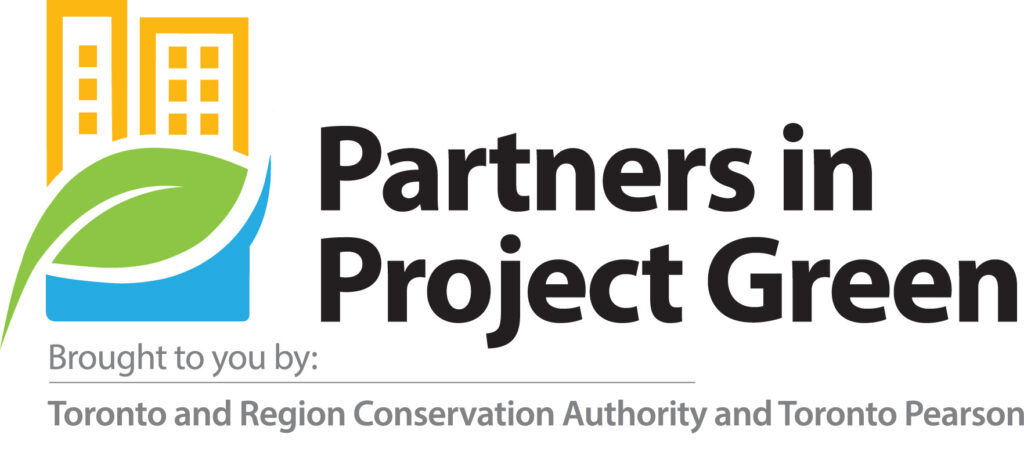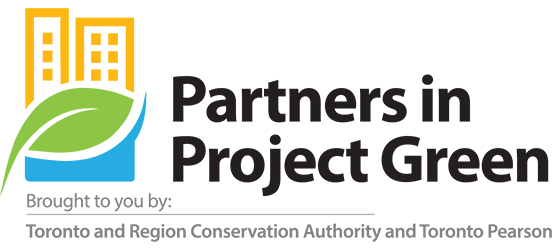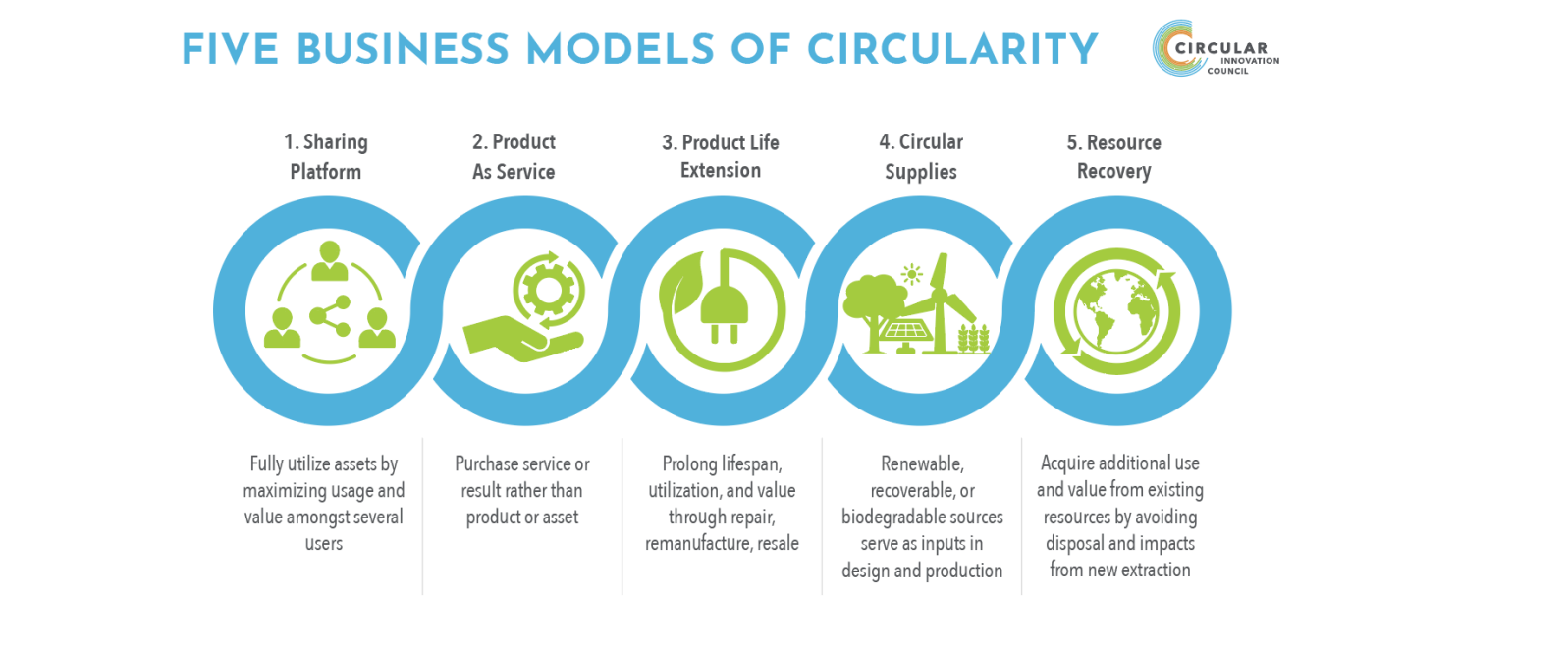In support of their joint objectives, the Circular Innovation Council (CIC) and Partners in Project Green (PPG), established a partnership to bridge circular procurement knowledge and best practices through a circular procurement learning journey. With advanced and category-specific modules, the learning journey has provided PPG members with the knowledge and skills to develop circular procurement criteria and metrics for use in their procurement practices.
This case study highlights two procurement initiatives by PPG members to promote and support environmental outcomes and lessons learned.
Background
A linear economy puts enormous pressure on our natural systems through its take, make, dispose approach while increasing energy consumption and greenhouse gas (GHG) emissions. The circular economy aims to design out waste, keep materials at their highest value, and regenerate natural systems. It encompasses the entire life cycle of a material or product and keeps materials in circulation through maintenance, reuse, repair, refurbishment, remanufacture, recycling, and composting. Circular procurement is an approach where goods and services are purchased systemically and purposefully to regenerate or recirculate material within value and supply chains, for economic, environmental, and social benefits.
PPG’s Circular Economy Leaders Consortium (CEC) provides collaborative multi-sectoral learning and engagement opportunities to organizations centered on advancing the circular economy within the scope of facility waste management. CEC members get access to resources and expertise on best practices and innovative technologies, learn from each other’s waste management practices, and strategize solutions to common challenges.
Scope of the Project
CIC has long recognized procurement as a key enabler to drive demand for circular solutions. The circular procurement learning journey is organized by CIC as a sequence of workshops that supports learners along a process of building knowledge and skills to increase understanding, inspire and motivate, identify actionable steps, and put theory into practice.
CEC members were offered three workshops including Circular Procurement 101 workshop in November 2023, followed by Advanced and Category-specific workshops in May and June 2024. The workshops were attended by both public and private sector organizations. Key workshop content included:
- Circular Procurement overview.
- Five Business Models and case studies.
- 7 Steps for Getting Started with Circular Procurement focused on the value of early market engagement to provide insights into market readiness.
- Setting Outcome-based Specifications highlighting circular procurement approach – Buy Less/Buy Better/Use Longer/Use Better.
- Measuring Impact with key performance indicators.
As a result of these workshops, two CEC members shared recent procurement initiatives that incorporated circular procurement learnings, as highlighted below.
TELUS’ Circular Procurement Initiative on Reusable Tote Bags
TELUS initiated a procurement process to replace retail polypropylene bags with reusable bags made from 100% recycled cotton, aligning with sustainability goals and regulations. This initiative connects government-required fees for reusable bags to environmental action, with proceeds supporting post-wildfire reforestation in Canada.
The initiative aimed to communicate TELUS’ reforestation efforts and design a bag customers would proudly carry. Circular ambitions included replacing plastic with recycled cotton and ensuring product longevity.

Solutions Finding
To support sustainability goals, circular ambitions were factored into this procurement, including:
- Circular Supplies and Resource Recovery, by replacing polypropylene plastic with biobased 100% recycled cotton, as well as exploring opportunities to support Canadian business with a preference for local; and
- Product Life Extension, by designing a bag that customers will be proud to carry, is washable, and therefore likely to be used for longer periods of time by customers.
Supported by research and vendor dialogue through the procurement process, TELUS was able to successfully finalize procurement criteria that met brand and sustainability goals simultaneously while meeting the preferred price point, working with Genumark Inc.
Lessons Learned
TELUS shared valuable lessons learned from this initiative:
- They emphasized the importance of challenging perceived impossibilities through thorough research and shopping around.
- As a budget owner, it’s crucial to drive circular, sustainable solutions, recognizing that procurement teams may not have the time or expertise to lead such initiatives.
- The team found that using open-ended queries with vendors, like “Are there any other sustainability solutions you’d suggest we include?”, uncovered innovative possibilities, including additional information on manufacturing facility certifications and emissions-reducing shipping options.
- They learned to build buffer time into timelines when sourcing innovative products, as unexpected delays are common.
- Insisting on samples before proceeding and clarifying expectations through regular follow-up questions were crucial for success.
This comprehensive approach to procurement demonstrates how organizations can effectively drive sustainability while meeting business needs.
City of Mississauga’s Sustainable Procurement Menu
City of Mississauga updated its sustainable procurement policy and was in the process of developing its in-house sustainable procurement tool to support consistent application of its policy when the circular procurement workshops were offered. The Sustainable Procurement Menu is based around the commodities Mississauga purchases the most and operationalizes the environmental, indigenous and social principles in the policy. The menu provides sustainability criteria for procurements that are being evaluated and for procurements where requirements are stated. The menu also provides guidance on the review and evaluation of bid submissions and language for use in contracts
Solutions Finding
The in-house tool was developed by the City’s sustainable procurement consultant and team of sustainability experts and includes the following key features:
- Commodity based.
- Opportunities for circularity around reuse, take-back, leasing, rentals or repairs for certain commodities.
- Outcomes based approach, aligning with the City’s strategic priorities on sustainability including ones focussed on shifting towards a circular economy. And looks at what suppliers are doing in their own operations around sustainability.
- Helps to achieve Best Value.
- Outcomes based approach also moves conversation beyond technical specification which can limit innovation and enables buyer and contract manager to think more broadly about value.
- Environmental outcomes focus on waste reduction, pollution reduction, energy efficiency and greenhouse gas emission reductions.
- Indigenous outcomes focus on reconciliation through employment opportunities, support of community initiatives and priorities, engagement with local community and integration of cultural contributions into community or project.
- Social outcomes focus on employment (equity deserving communities and small businesses, social enterprises and diverse owned businesses get priority) and skills and workforce development (apprenticeship and paid work opportunities).
Lessons Learned
City of Mississauga shared the key lessons learned through the procurement initiative:
- Suppliers are ready to respond, don’t be afraid to ask for things through a procurement to advance sustainability.
- It is important to align sustainability initiatives with already approved corporate strategic priorities.
- Be prepared to do a lot of change management.
- Collaborate with others who work on sustainability in the organization.
- There are a lot of great resources available and organizations working on similar initiatives.
Conclusion
The Circular Procurement Learning Journey workshops equipped participating organizations – both sustainability and procurement staff – with an in-depth understanding of:
- the five circular business models,
- how to leverage the simple yet effective framework, Buy Less/Buy Better/Use Longer/Use Better, to develop circular outcomes across the procurement and product lifecycle, and
- the benefits of using outcomes-based procurement approaches to enable vendors to deliver innovative solutions that the buying team may not be aware of.
TELUS, City of Mississauga and other CEC members were able to leverage a number of these concepts to advance circular procurement at their organizations. PPG and CIC look forward to supporting more successes in the years ahead.


Circular Innovation Council has developed its Circular Procurement Centre of Excellence to provide publicly available case studies and resources to accelerate circular procurement across Canada.
To learn more about PPG’s Circular Economy Leaders Consortium (CEC) please contact Chaya.Chengappa@trca.ca to advance the circular economy within the scope of facility waste management.

